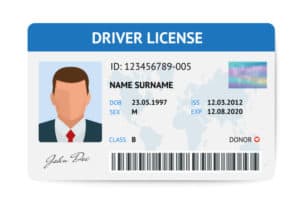
You can refuse a breathalyzer or blood test in Texas, although you may face penalties as a result. In some cases, the police can obtain a sample from you, despite your objections.
Are You Required to Submit to a Breathalyzer or Blood Test in Texas?
Yes. When you obtain a license in the state of Texas, you consent to give a breath or blood sample upon arrest for driving while intoxicated (DWI). This is known as the implied consent law. It is important to remember that this requirement kicks in upon being lawfully arrested for DWI.
Before an arrest, you can legally refuse to submit to any BAC testing — both breathalyzer and blood testing and field sobriety testing.
After an arrest, you can also refuse to submit to chemical testing — a decision the police must respect in most cases. (Note: You will face penalties for this refusal.)
The Police May Be Able to Take Your Sample Without Your Consent
In some circumstances, the police can compel the taking of a breath or blood sample without your consent. They can do so if they have reason to believe you were operating a motor vehicle in a public place while legally intoxicated due to alcohol, drugs, or another substance and if one of the following circumstances applies to your case:
- If you have a previous conviction for DWI with a minor child (age 14 or younger) in your vehicle
- If you had a DWI accident in which someone needed transport to the hospital, sustained serious bodily injury, or died
- If you have two previous DWI convictions
- If you have one previous intoxication assault or intoxication manslaughter conviction
Being charged with a DWI in Texas has serious consequences. Depending on the circumstances, you can receive a fine, lose your license, and get jail time upon conviction. A Dallas criminal defense lawyer can consult your case and offer further legal guidance.
What Consequences Will I Face for Refusing a Breathalyzer or Blood Test?
While you can refuse a breathalyzer test in Texas, you will face a license suspension. How long you lose your license after your refusal depends on whether or not it is your first time refusing or failing a test.
For a first refusal, you could lose your driver’s license for 180 days.
If you have a prior DWI or refusal, the Texas Department of Public Safety (TxDPS) could suspend your license for 2 years.
An administrative hearing will determine whether you lose your license and, if so, for how long. This civil proceeding, known as the Administrative License Revocation (ALR) hearing, occurs in addition to any criminal court proceedings. To begin this process, you must contact the TxDPS within 15 days of your arrest to request your hearing. If you fail to do so, TxDPS will automatically suspend your license for the maximum allowable period.
Should You Refuse a Breathalyzer or Blood Test?
Whether or not to refuse chemical testing for BAC is a personal decision. However, the team at the Law Offices of Randall B. Isenberg recommends refusing all the following requests:
- Submitting to a roadside breathalyzer test
- Submitting to field sobriety testing
- Admitting that you have consumed any alcohol
- Submitting to pre- or post-arrest breathalyzer, blood, or urine test
If you refuse, it is essential that you understand the potential penalties you may face as a result. It is also critical that you seek help from a Texas DWI lawyer in fighting a drunk driving charge.
It is possible that your case could benefit by your refusal to submit to a breathalyzer or blood test. Without affirmative evidence — such as a chemical BAC testing report — the prosecutor may have a harder time obtaining a conviction.
However, the prosecutor may argue that your refusal is an admission of guilt because you knew you would fail the test. A DWI defense lawyer in Dallas can argue your case in court should you decide to refuse a breathalyzer test.
How Can a Texas DWI Lawyer Help You if You Refused a Breath or Blood Test?
A DWI charge — whether or not you refused chemical BAC testing at the time of arrest — poses a serious threat to your freedom and future. To learn more about your options, contact the Law Offices of Randall B. Isenberg today.
Based on the details of your case, our legal team can evaluate the legality of your arrest and look for potential errors or violations of your constitutional rights. If the police compelled you to submit a breath or blood sample against your will, we will explore the potential for errors made by breathalyzer technicians or the testing lab.
We can use any such irregularities to challenge the validity of your arrest and charges to negotiate for a reduction or dismissal of your DWI charges.
Contact us today at 214-696-9253 to learn more, or to schedule your free consultation and case review.










